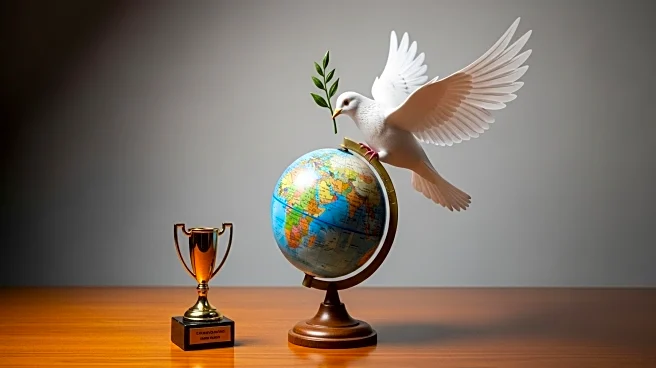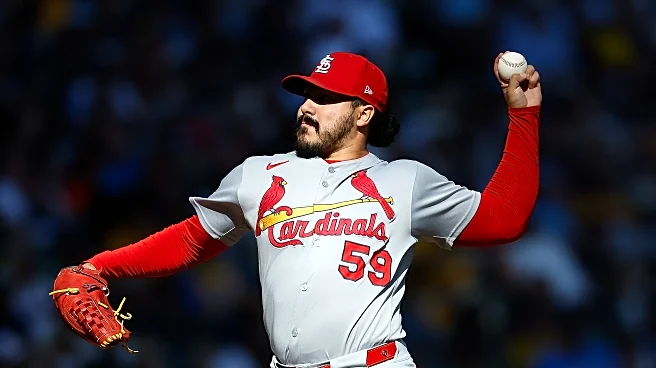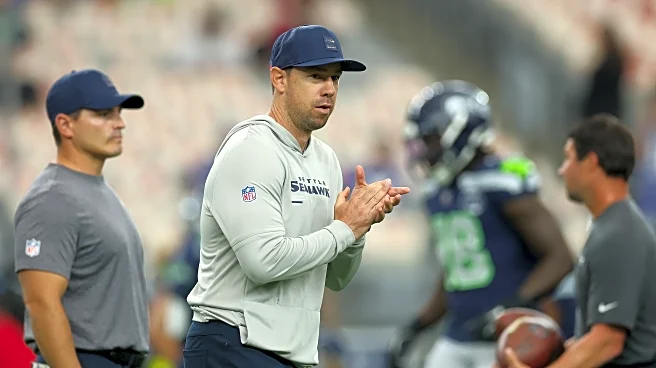What's Happening?
Russian President Vladimir Putin has publicly praised U.S. President Donald Trump for his peace efforts, despite Trump not winning the Nobel Peace Prize. Putin highlighted Trump's initiatives towards achieving ceasefires in Gaza and Ukraine, describing these efforts as significant in resolving long-standing global crises. The comments were made during a summit in Dushanbe, Tajikistan, where Putin expressed hope for extending the New START nuclear arms treaty with the United States. Trump responded to Putin's praise via his Truth Social network, acknowledging the Russian leader's remarks and emphasizing his commitment to global peace.
Why It's Important?
Putin's endorsement of President Trump's peace efforts underscores the complex geopolitical dynamics between the U.S. and Russia. The acknowledgment of Trump's initiatives in Gaza and Ukraine highlights the potential for diplomatic progress in these regions, which have been marred by prolonged conflicts. Additionally, the discussion around the New START treaty is crucial, as it represents one of the last remaining arms control agreements between the two nuclear powers. The extension of this treaty could stabilize nuclear arsenals and prevent an arms race, impacting global security and strategic balance.
What's Next?
The potential extension of the New START treaty remains a critical issue, with both Moscow and Washington needing to reach an agreement before its expiration in February. Putin has indicated Russia's readiness to negotiate, contingent on American willingness. The outcome of these negotiations could significantly influence international arms control policies. Furthermore, Trump's continued diplomatic efforts in conflict zones like Gaza and Ukraine may lead to further developments in peace processes, potentially altering U.S. foreign policy and its role in global conflict resolution.
Beyond the Headlines
Putin's remarks also reflect on the Nobel Peace Prize's selection process, questioning the criteria for awarding the prize and its impact on global recognition of peace efforts. This critique may influence future considerations for the prize, potentially prompting a reevaluation of how peace initiatives are recognized and rewarded internationally.










